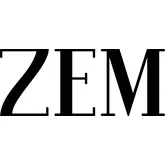Many of today’s top Hollywood directors that have gone on to make the blockbusters that haunt our summers became known first for making “independent” films. We are talking about maestros like Christopher Nolan, Quentin Tarantino, Steven Soderbergh, and Peter Jackson. And by “independent”, we mean films made outside the Hollywood studio system, with small budgets and no-name actors. There is an established support system in the US for this kind of cinema, with major film festivals like Sundance, TV channels like IFC (the Independent Film Channel), and award shows like the Independent Spirit Awards. We decided to investigate whether the Czech Republic is a place where you can make an independent film and set upon your path to cinematic glory.
The Czech Republic is a country where local films are generally well-supported by audiences, with Czech productions competing favorably with Hollywood extravaganzas at the box office. We spoke to a number of Czech directors who consider themselves independent filmmakers and got their illuminating takes on how they make their films.
For a true example of an indie Czech production, Ludmila Claussova of the Czech Film Commission referred us to seek out Václav Kadrnka who directed Osmdesát dopisů (Eighty Letters), an autobiographical tale of a day in the life of a boy whose parents are emigrating to England in 1987. His film screened at Berlinale 2011 among many other film festivals. Václav’s feeling is that independent film in the ČR “practically doesn’t exist” as all money comes either from the state’s Czech Cinema Fund or television companies (like Czech TV, TV Nova and Prima), and without that support, it’s nearly impossible to make a film. Vaclav says that after he applied for State funds five times and was denied on account of his project being too artistic, his producers dropped him. This experience left the director feeling that “the system doesn’t even want truly independent filmmakers, which has something to do with the general post-communist way of thinking about individuals and masses.”
So how did he make his film? Václav says: “I practically financed and finished the movie by myself, became a producer and borrowed the money from my friends and family. But nobody else does that. Eighty Letters is the first truly independent Czech feature live action film that was distributed in cinemas and had a festival recognition with international awards.” Václav found distribution for his film after Berlinale when the distribution company Artcam approached him.
Another take on what it means to be an independent filmmaker comes from Filip Remunda, who is one of the co-directors of the notorious Czech documentary Český sen (Czech dream), where he and his partner Vít Klusák filmed a large-scale hoax of thousands of unsuspecting people coming to an opening of a new hypermarket that didn’t actually exists. Their film (and their other projects) was made in cooperation with the public broadcaster Czech TV and with the support of the Czech Cinema Fund.They also get some funding via European co-productions. But Filip definitely considers himself an independent filmmaker as he is not making films for financial rewards – their company doesn’t do commercials and focuses only on documentaries, many quite controversial in subject. He says, “we are indecent not only in a production meaning of the word but even more in dramaturgical profile.” Their film Czech Dream was lauded and introduced by the documentary badboy god Michael Moore at a US film festival. This strength of the filmmaking of this project got it distribution in 11 countries (including US and UK) via the UK World Sales agent Taskovski Films.
Currently, Filip and his partner Vít Klusák are making what he calls an “experiment”. It’s a documentary series portraying the year 2012 in the Czech Republic from their subversive point of view. Exploring alternative sources of funding, they are also crowdfunding a project in development called “Sophie’s Choice/The Czech Way”. It focuses on the stories of Jewish teenagers from Czechoslovakia who ended up in Denmark and Sweden during World War 2. Filip calls for potential supporters of the project to email him at email@hypermarketfilms.cz.
Another Czech director with a Do-It-Yourself approach is Jan Wolf. It took him 3 years of shooting and 1.5 years of post-production to make his first feature film, Normalis, using his own funds and pulling favors, with crew working mostly whenever they had a free weekend from their day jobs.
Normalis film official trailer from Jan Wolf on Vimeo.
The 2010 picture was a retro look at several characters whose lives revolve around the Czech film industry from 60s to 80s. It got the attention of film festivals like Febiofest in Prague, and this summer he is shooting his sophomore effort, a noir thriller produced by a famed Czech producer. Jan didn’t start out on his film road with any special mission to be in or out the system. He confides: “At the beginning of shooting it was just a hobby, a joy of making a movie absolutely in my way. I didn’t think at that time if I´m an independent filmmaker or not. I just wanted to shoot it.” In general, Jan is skeptical if any filmmaker can be fully “independent” as the money always has to come from somewhere.
Roman says that in the Czech Republic, going for state funding with a horror script is “an absolute waste of time.” Doubly so, if you are an unknown filmmaker. And your third strike would be if you want to make exploitation or splatter horror flicks. As finding private investors also doesn’t prove too fruitful, Roman funds his films mostly by himself, shooting on minimal budgets, doing many production tasks just on his own. He laments – “I would like to see the day when I can do only the directing and not have to worry about another fifty things, including if there is toilet paper by the toilet.”
He finds limited distribution for his films via specialty companies like Sinerama Films. He also screens his projects at local genre film festivals like Noci hororu, Festivalu Fantazie, and Bloody Xmas Festival. As there are few horror films made in CR, Roman half-jokingly blames the years of communist rule for the difficulty in finding support for genre projects in the country. He says that “because of f***** communists, in the last 40 years, there were only a couple of films made which were half-horror, half-art films.” He doesn’t see television, cinemas, or DVDs as viable forms of distributing horror films. Rather the future seems to be in screening via the internet. He is currently finishing up a horror short which he will screen at this June’s Noci hororu/Nights of Horror” festival.
Useful advice for people who want to make a film:
We asked the directors mentioned in this article for any advice they could give to prospective filmmakers in the Czech Republic. Here’s what they had to say:
Václav Kadrnka: “I believe the truly independent cinema author must be willing to risk and try to make his film no matter what! That´s missing in present Czech cinema. I would say this to young filmmakers: don´t let the system tell you what to do, learn from the true cinema masters and go and risk everything to make a personal film, it´s worth it and only by this way you can change the world to better!”
Filip Remunda: “Check out the Ex Oriente Film Training Programme organized by the Institute of Documentary Films (IDF) at www.dokweb.net. There is actually a call for proposals going on. I co-founded the Institute 12 years ago, and I would recommend its programs to anyone who would like to cope with the hard free market reality. IDF has tools which would help you to overcome the Darwinian reality on the so-called audiovisual market.”
Jan Wolf: “Simply: shoot with love and passion :)”
Roman Vojkůvka: “To filmmakers who studied, I do not dare to give suggestions, but if we’re talking about self-taught filmmakers, there’d be a lot of advice. I would start with a small shoot, being in the smallest place possible, more in the interiors, with less actors, without complicated dialogue. Always be ready that somebody is not going to show up, which happens some times with some unprofessional actors. And in general, be prepared for the fact that something always goes to sh**. It’s important to base everything on a simple and (if possible) original idea, and mainly realize the fact that you will not learn to shoot films other than by shooting them… “
Expats.cz: And don’t forget our advice on crowdfunding, as detailed in this previous article












 Reading time: 7 minutes
Reading time: 7 minutes 























